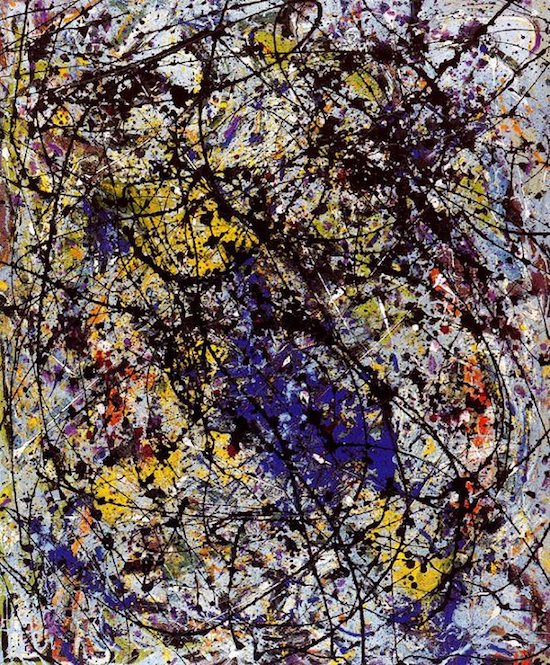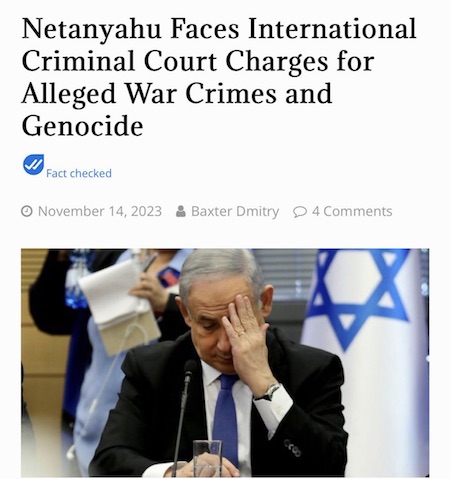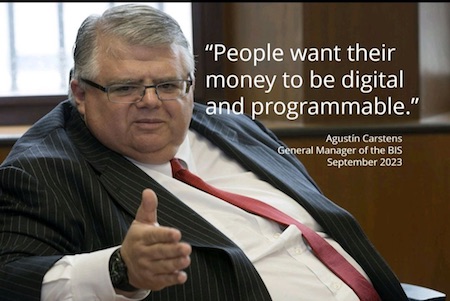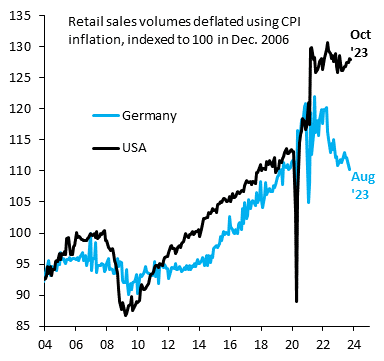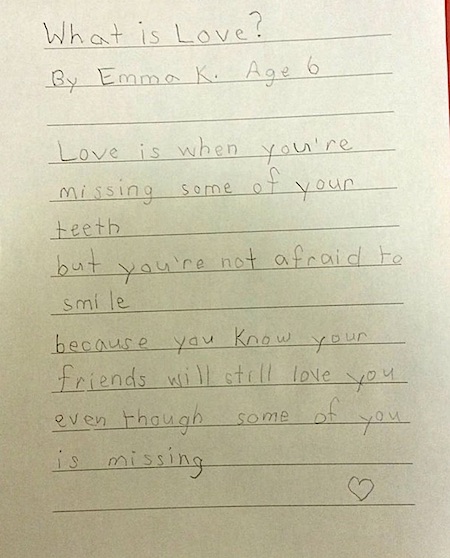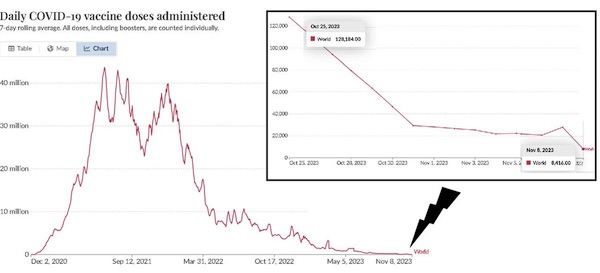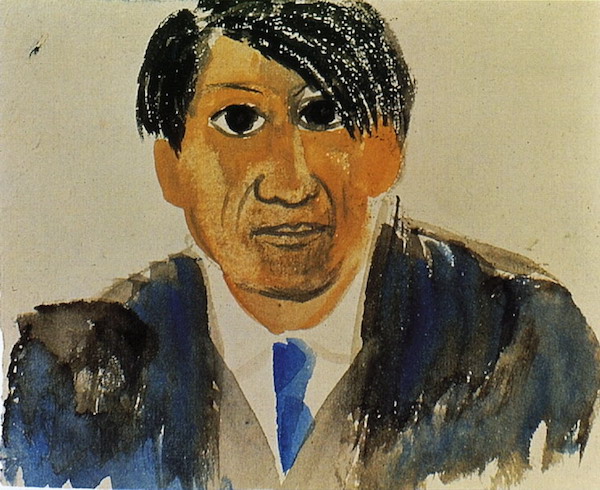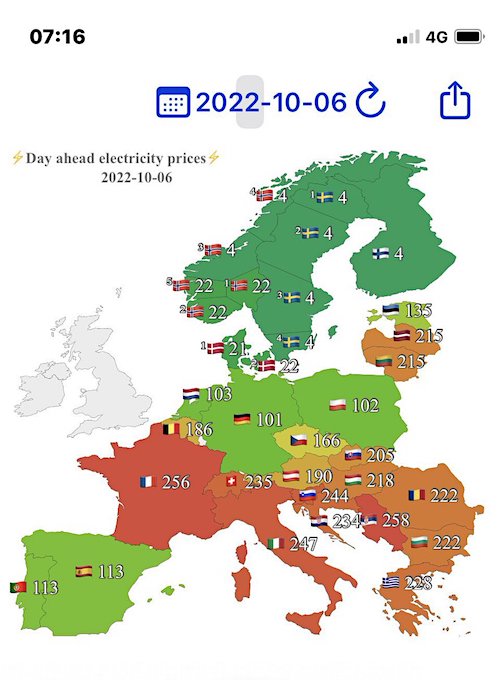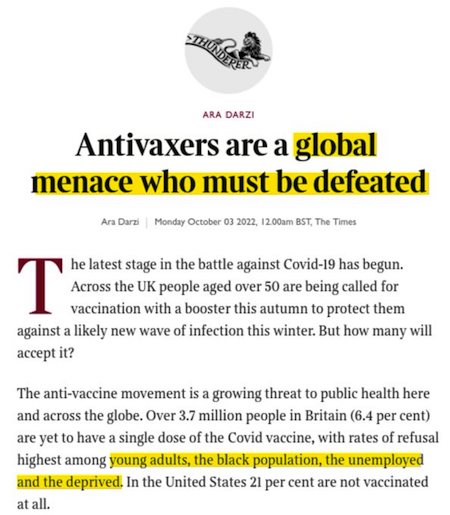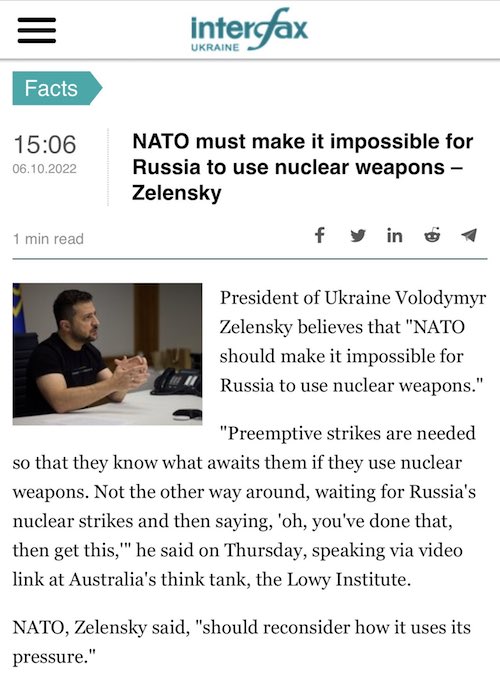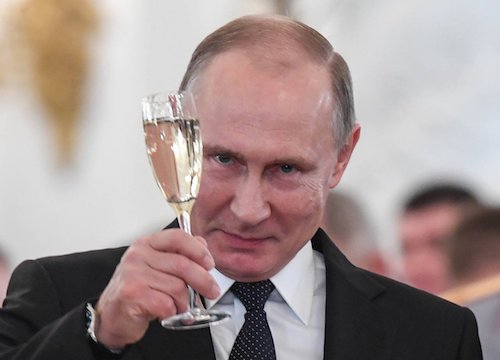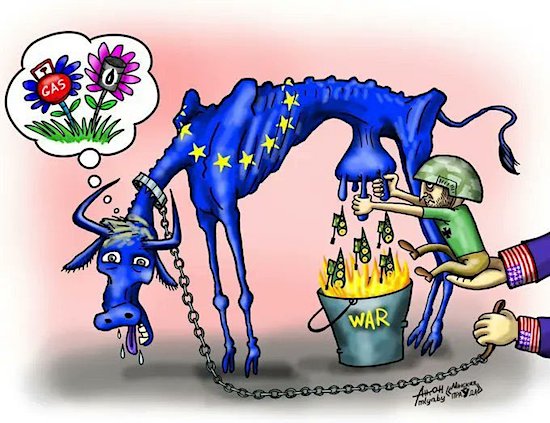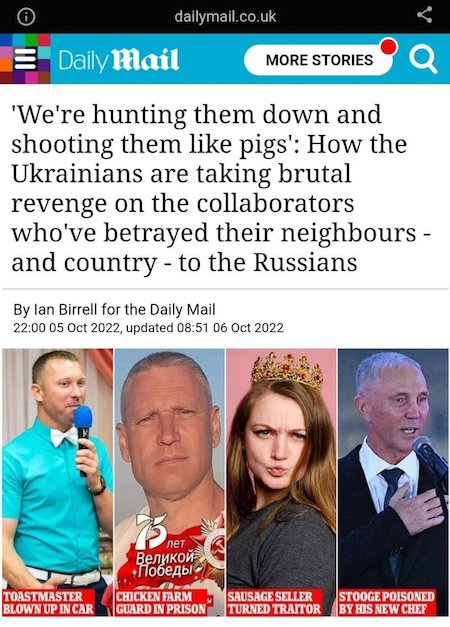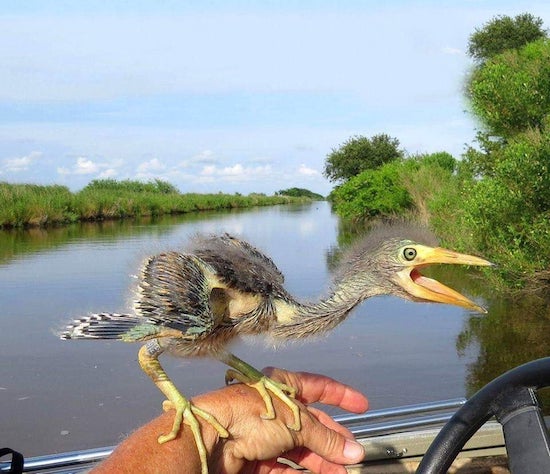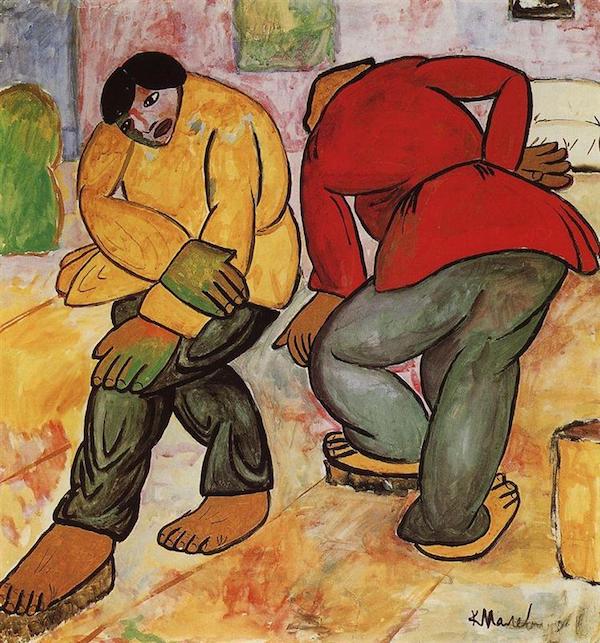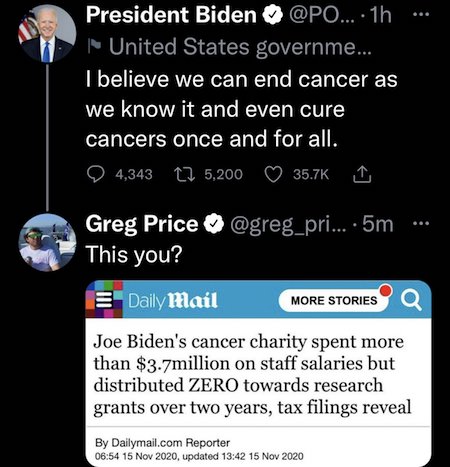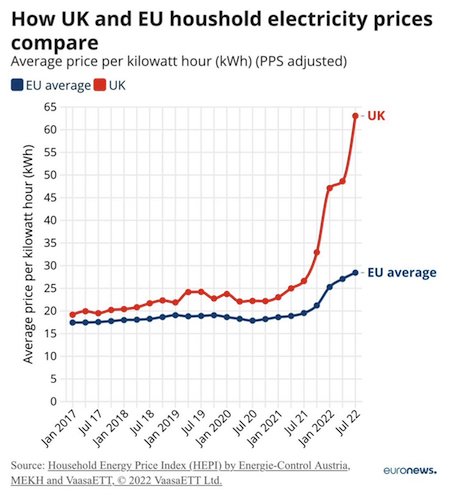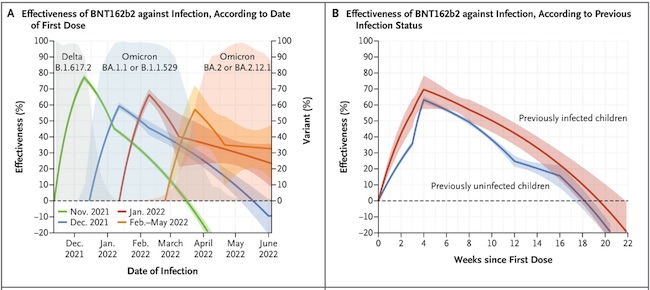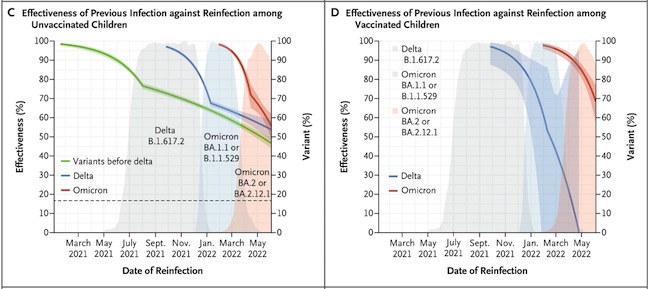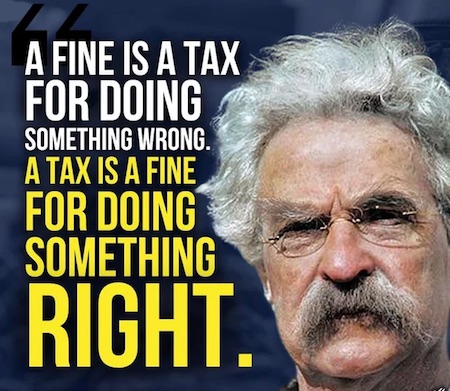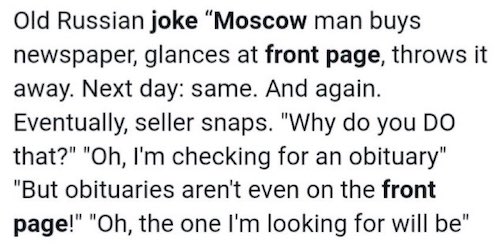
Edward Hopper Two on the Aisle 1927

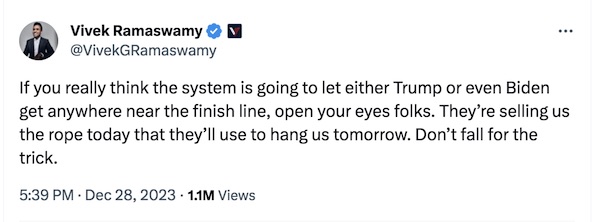

Tucker Carlson: This will be a very different country in December of 2024. It feels that way, it feels like we are on the brink, they've taken the mask off, they're not hiding who they are anymore. They are not trying to convince you anymore, they're not pretending it's for your… pic.twitter.com/O9qKUILkqy
— Camus (@newstart_2024) December 28, 2023
The Biden administration is importing millions of third world immigrants to live here illegally, and at same time telling them that white people are the source of their problems. How’s that going to work out in the end? pic.twitter.com/mSbXjyML7C
— Tucker Carlson (@TuckerCarlson) December 28, 2023

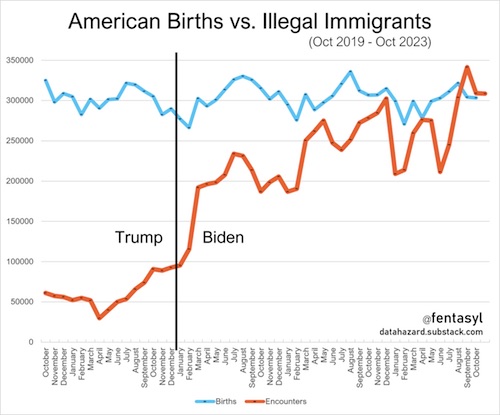
Since August, there are officially more ILLEGAL MIGRANTS arriving each month than there are children being born to American mothers. And these are just the official encounters — we don’t know how many avoided detection.

Palestine UN
Palestine delivers the greatest speech in modern history at the UN Security Council…🔥 pic.twitter.com/wA6iA5PBW9
— Pelham (@Resist_05) December 30, 2023

DC Draino:
This is insane corruption
FTX snowplowed millions of dollars into Democrat campaign accounts
DOJ separated campaign finance charges from his fraud trial
Now after being convicted for fraud, they’re dropping the 2nd trial for campaign finance crimes
Would’ve implicated too many Dems and RINOs
I know our gov’t is corrupt but sometimes things like this surprise even me
SBF case generated too much publicity to be ignored.
DOJ severed the campaign finance violations, which implicated Democrats, from the first trial.
They declined to move forward with the second trial.
No bribes will be made public.
Mop up operation complete. pic.twitter.com/askb98TbLI
— Cernovich (@Cernovich) December 30, 2023

Grayzone Israel
What is wrong with Israelis?@MaxBlumenthal takes a searing look at the societal sickness that exploded into the open after October 7, as Israelis of all walks of life took to social media to mock the suffering of Palestinians, flaunted war crimes and clamored for genocide pic.twitter.com/TgVs1G4HgH
— The Grayzone (@TheGrayzoneNews) December 28, 2023


Milei
How import tariffs weaken the economy and your wallet.#milei #argentina #economy #tariffs #imports #entrepreneurs #wages #openeconomy #freetrade pic.twitter.com/zuoUWNMRo2
— Milei Explains (@Milei_Explains) November 26, 2023

Tomorrow
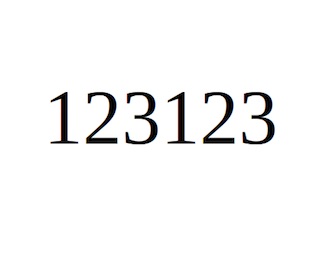

Judge Nap Schaffer

South Africa has triggered the Genocide Convention and instituted proceedings against #Israel before the ICJ over #Palestine
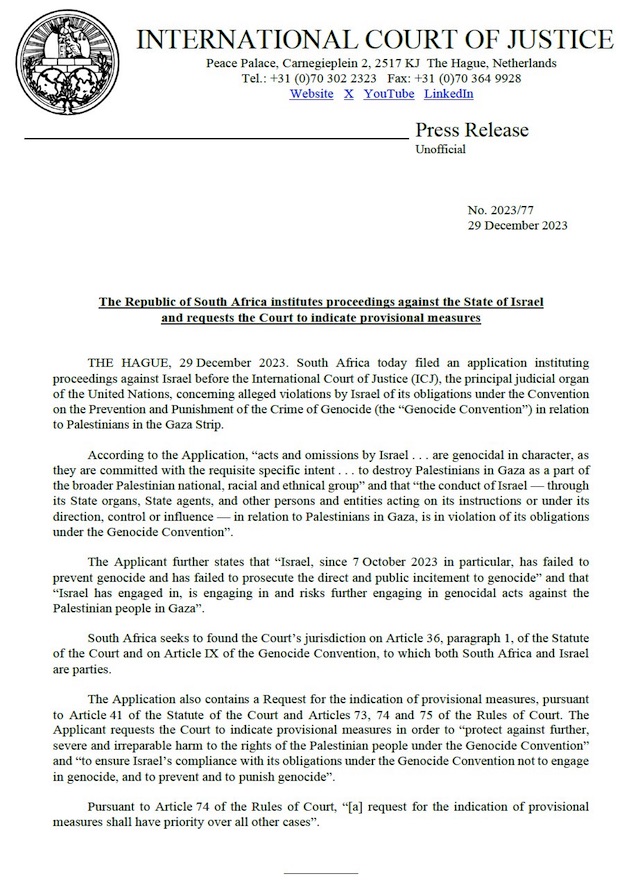


“..Russia’s stated goals of demilitarization and “de-Nazification” of Ukraine would have been addressed under the pre-approved treaty. “Options remain to either achieve them through an agreement or by force,” Putin stressed.
• Putin ‘Tried Everything Possible’ To Make Peace – Ukrainian Diplomat (RT)
Russian President Vladimir Putin personally sought a peace agreement with Ukraine in April 2022, according to Ambassador Aleksandr Chaly, a distinguished member of the Ukrainian delegation. Chaly expressed this perspective during an event at the Geneva Center for Security Policy (GCSP) in early December, where he dissected the ongoing conflict in Ukraine. The ex-deputy foreign minister is an associate fellow at the Swiss government-funded foundation. His remarks drew media attention after a video of the event was released on YouTube last week. Chaly analyzed the roots of the ongoing conflict, which he described as “hard competition” for Ukraine that the US and the EU have with Russia, as well as Kiev’s intention to join the EU and NATO. He stressed that “Russian aggression” was not inevitable since the parties had sufficient tools to resolve their differences.
The diplomat called Putin’s decision to launch the special military operation against Ukraine in February 2022 “a crime” and “a mistake” and claimed that the Russian leader had been misled by “his own propaganda and his intelligence services.” Approximately a week into hostilities, Chaly believes Putin recognized the unrealistic nature of his expectations and actively pursued a negotiated resolution. He based his analysis on his personal involvement in the peace talks, which were first hosted by Minsk and culminated in Istanbul in late March with a draft truce approved by both sides. “Putin … tried to do everything possible to conclude [the] agreement with Ukraine,” the diplomat told the audience. The text made concessions to Kiev, compared to Russia’s initial position, and it was Putin’s “personal decision” to accept it, he claimed. We’ve managed to find a very real compromise. Putin really wanted to reach some peaceful agreement with Ukraine.
Chaly mused that “for some reason,” the Istanbul communique did not transform into an actual treaty. The Ukrainian delegation’s leader, MP David Arakhamia, said in late November that then-British Prime Minister Boris Johnson advised Ukrainians to “just continue fighting” during his visit to Kiev after the conclusion of the talks. Remarks made by senior Russian officials, including Putin, partially back Chaly’s account. The president said during his year-end press conference this month that Russia’s stated goals of demilitarization and “de-Nazification” of Ukraine would have been addressed under the pre-approved treaty. “Options remain to either achieve them through an agreement or by force,” Putin stressed.

“..a kind of a rolling offensive right now that at some point in my opinion would cause the Ukrainian army to crack and maybe the Ukrainian state to crumble.”
• Is Talk of Peace in Ukraine a Washington ‘Deception’? (Sp.)
Analysis has emerged recently suggesting the conflict in Ukraine could be drawing to a close, presenting the opportunity for diplomacy. But former US diplomat Jim Jatras says Russia should be on guard against premature declarations that peace is at hand, warning that talk of negotiations could be a ruse by Washington to buy time for Kiev. The former senior foreign policy adviser to Senate Republicans made the claim Friday on Sputnik’s Political Misfits program. “If I were in the Russians’ shoes, that’s [negotiation] the last thing I would do,” said Jatras. “I would basically go forward with their military advantage and impose a settlement on Ukraine through military diktat.” “I think that these articles [that] are being floated – notably the one in the New York Times that the Russians are desperate for some kind of agreement – are designed… to trick the Russians into a kind of a phony deal like ‘Minsk 2’,” added the analyst.
“Where they get all sorts of promises [and] they forgo their military advantage in order to fall for another deception where they can put Ukraine on hold for a while while the United States and our allies focus on other things like Gaza or the Chinese or something like that.” The so-called Minsk accords were the culmination of internationally-mediated negotiations after Ukraine’s Euromaidan coup in 2014. The agreements were ostensibly designed to resolve tensions between Ukraine and Russia and respond to the demands of separatists in Ukraine’s eastern Donbass region. Although Ukrainian President Voloydymyr Zelensky ran on implementing the accords, he abandoned the effort once elected, under pressure from fascist and nationalist forces in the country.
It was later revealed that former UK Prime Minister Boris Johnson, at the instruction of the United States, urged Ukraine to reject the agreement to increase the chance of military conflict between Ukraine and Russia. Former French President Francois Hollande confirmed the negotiations were merely a stalling tactic to allow Ukraine to strengthen its military, an account which was recently verified by former Israeli Prime Minister Naftali Bennett. Jatras said recent Western discussion of renewed negotiation may also be insincere. “If you look at the latest posts on X from Dmitri Medvedev, he’s making it pretty clear that they’re not going to fall for that,” said the ex-diplomat. “Does that mean that’s true or not? I don’t know.”
“I think that’s part of what I described earlier as part of a deception,” he added, “part of an attempt by people in Washington to look reasonable, to get Russians engaged in the talks, get them to to slow down what seems to be a kind of a rolling offensive right now that at some point in my opinion would cause the Ukrainian army to crack and maybe the Ukrainian state to crumble.” Host John Kiriakou noted Russia’s missile attack on Ukraine Thursday night, in which the country fired some 120 rockets at Ukrainian cities and also utilized exploding drones. Kiriakou speculated the attack could be designed to allow Russia to negotiate from “a position of strength” in any upcoming peace talks. But Jatras insisted he doesn’t believe Washington is “genuine” about the idea, even as Republicans in Congress say they will not approve another round of military aid to Ukraine.

“..Finland, in its entire history, never enjoyed greater peace, prosperity, or democracy than during the period of ‘Finlandization’.”
• Beginning of the End of Ukraine Conflict Chance for Diplomacy, Negotiation (Sp.)
A wind down of fighting in Ukraine could provide the opportunity for compromise, ‘Finlandization’, and maybe even a role for China, according to investigative journalist Daniel Lazare. Lazare made the claim on the Sputnik’s Political Misfits Thursday in a wide-ranging discussion that also touched on US drug and immigration policy. Host John Kirakou noted that “Republicans have been remarkably unified in their opposition to more military aid to Ukraine, and Democrats have been unsuccessful in tying that aid to aid to Israel.” “Are we seeing the beginning of the end of this conflict?” asked Kiriakou. “I think so,” responded Lazare, noting that Russia has a population some three times as large as Ukraine’s and enjoys a significant advantage in access to resources. “They are just grinding the Ukraine down and without massive outside assistance its fate is really fixed.”
But Lazare blamed the United States for the outbreak of the conflict and warned America could still stand in the way of peace. “The US pushed the Ukraine into an extreme position of rejecting any kind of compromise whatsoever even though a compromise really made sense. Because it’s clear that the population in the eastern Ukraine and the Crimea just have lost faith in the Kiev government, which was taken over by extreme nationalists.” “This seems to me to be a case of just a completely ill thought out policy that sort of just flowed from years of neocon arrogance,” claimed Lazare. US President Barack Obama’s foreign policy circle was dominated by neoconservatives like Assistant Secretary of State Victoria Nuland during Ukraine’s so-called Euromaidan coup in 2014. Western governments cheered on anti-government protests at that time even though polling showed most Ukrainians disagreed with the demands of protesters at Kiev’s Maidan Square.
After neo-Nazi groups forced elected Ukrainian President Viktor Yanukovych to flee the country, leaked audio emerged of Nuland discussing the United States’ attempts to shape the interim government. Nuland boasted of sending $5 billion to promote so-called “democracy building programs” in Ukraine – code for activity designed to promote US interests in foreign governments. The term “color revolution” has been coined to describe US regime change efforts spurred by the funding of opposition forces, especially in Russia’s sphere of influence. US interference helped “tear the country in two,” according to Lazare, and made “outright war more or less inevitable.” “And now the US is facing the consequences. Or rather Zelensky is facing the consequences while the US kind of walks away,” the analyst stressed. Lazare noted “the US will not find it easy to back off” from its support for Ukrainian President Volodymyr Zelensky, but he proposed a future wherein peace could be brought to Ukraine if the country agrees to demilitarize.
“What Russia is looking for is ‘Finlandization’,” said Lazare, using the term for Finland’s foreign policy position throughout the Cold War that saw the country adopt a neutral stance towards the Soviet Union. “’Finlandization’ is a dirty word. But bear in mind that Finland, in its entire history, never enjoyed greater peace, prosperity, or democracy than during the period of ‘Finlandization’.” “I actually visited Finland in 1972 during the period of ‘Finlandization’ and it was a glorious society,” said Lazare. “I mean prosperous, egalitarian, socialistic… That was the Russian posture for good reason. It could’ve been worse. I mean, Russia could have demanded the ‘Mexicanization’ of the Ukraine, which would mean inclined to get into poverty and crime. But Russia didn’t do that. And so the deal they offered this border country was really pretty good. It would have been satisfactory [in Ukraine] to a wide range of interests. But the US blocked it.”

“”Kiev still thinks like a warmonger and intends to continue the conflict ‘until the victorious end,’ which obviously means ‘war to the last Ukrainian..”
• Ukraine ‘Thinks Like a Warmonger’ – Russian Foreign Ministry (Sp.)
Moscow sees no political will for peace either in Kiev or in the West, Russian Deputy Foreign Minister Mikhail Galuzin told Sputnik. The official reiterated that “a comprehensive, sustainable, and fair settlement of the Ukraine conflict depends to a large extent on the elimination of its root causes.” “The West should stop pumping arms into the Armed Forces of Ukraine, and Kiev should stop fighting and withdraw its troops from Russian territory,” Galuzin stressed. According to the top diplomat, “Ukraine’s neutral, non-aligned, and nuclear-free status should be confirmed and its demilitarization and denazification should be carried out. New territorial realities should be recognized, and the rights of Russian-speaking citizens and national minorities living in this country should be ensured.”
“Unfortunately, today we see no political will for peace either in Kiev or in the West,” the deputy foreign minister said, recalling Zelensky’s decree banning negotiations with Russia “The Kiev regime rejects peace mediation initiatives presented by various countries over the past months,” the official emphasized. Meanwhile, he noted that “the so-called ‘peace formula’ proposed by the Ukrainian president last November and presented by him and his Western partners as almost a final settlement plan in fact has nothing to do with peace, but is a set of ultimatums to Russia justifying the continuation of hostilities.””Kiev still thinks like a warmonger and intends to continue the conflict ‘until the victorious end,’ which obviously means ‘war to the last Ukrainian,'” Galuzin said.
“Washington and its NATO subordinates eagerly support Kiev on this, satisfying the growing military appetites of Volodymyr Zelensky’s regime. All of this only delays the conflict settlement,” he added. The top diplomat stressed that Russia has never refused to negotiate with Ukraine and has always advocated for a political solution to the conflict. “But so far we’ve had no other choice but to carry out the special military operation until the full implementation of all the set goals,” the Russian deputy foreign minister concluded.
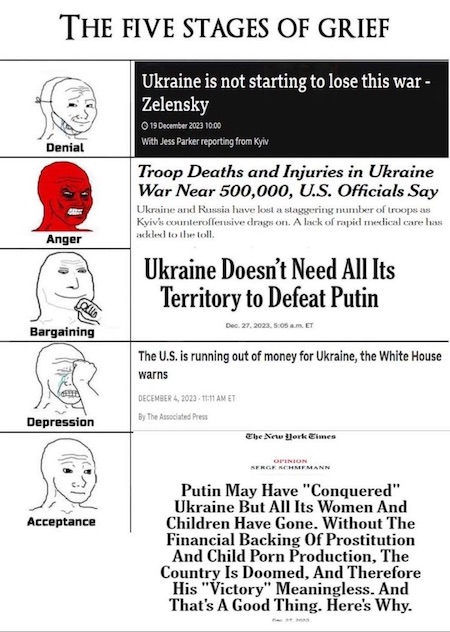

“..the policy of eliminating one of the most environmentally friendly energy sources is forcing “some EU member states to de-industrialize.”
• EU States Knowingly ‘De-Industrializing’ – Gazprom (RT)
The EU is intentionally destroying demand for natural gas, Gazprom CEO Aleksey Miller stated at a company meeting to discuss the year’s preliminary results. “We are well aware of the situation in Europe, where they have taken an unprecedented step,” the chief executive said. “There, for the first time in history demand for natural gas, a primary energy source, is being artificially destroyed.” He insisted that the policy of eliminating one of the most environmentally friendly energy sources is forcing “some EU member states to de-industrialize.” Global demand for gas, however, is expected to increase by 43% in the next 25 years, Miller noted, adding that the energy giant is ready, as it has been developing cooperation with nations that are interested in reliable energy supplies.
He pointed out that Gazprom has been working with Asia for a long time. “The volume of gas supplies to China in 2023 will be over 22.5 billion cubic meters, exceeding the contractual obligations by 500 million cubic meters,” Miller stated, adding that Gazprom plans to deliver as much as 38 billion cubic meters of natural gas to East Asian nation. Gazprom supplies natural gas under a long-term contract sealed with the China National Petroleum Corporation (CNPC). The Power of Siberia pipeline is part of a $400 billion, 30-year agreement between Gazprom and the CNPC clinched in 2014. Russia’s gas exports to China are projected to reach 100 billion cubic meters annually, taking into account a transit pipeline through Mongolia. Russian gas exports to the EU have dwindled due to Ukraine-related sanctions and the sabotage of the Nord Stream pipelines last year, previously Russia’s key gas route to the region. However, Gazprom has successfully redirected its energy trade towards Asia, with China emerging as its largest importer.

“..Moscow has a list of US, European, and other assets that would be seized if the G7 nations decided to confiscate the $300 billion in frozen reserves belonging to the Russian state.”
• Russia Warns West On ‘Boomerang Effect’ Of Confiscating Assets (RT)
Russia will retaliate in kind to the potential confiscation of its assets by Western countries, Kremlin spokesman Dmitry Peskov told journalists on Friday.Russian authorities have assessed the unpredictability of the opposing side, as well as their tendency to violate international and other laws, Peskov stated, adding that, for now, confiscation of foreign assets in Russia can only be considered in theoretical terms.“When they [Western powers] started piling unprecedented economic sanctions on us, they did not think about the boomerang effect at all, but now it is obvious,” Peskov said, adding that a number of sanctions supporters are now wondering whether they did the right thing. According to the official, Moscow has a list of US, European, and other assets that would be seized if the G7 nations decided to confiscate the $300 billion in frozen reserves belonging to the Russian state.
“Of course, we analyzed possible retaliatory steps in advance. And we will do everything so that they best suit our interests. But in general, no theory can be legal; it can only be pseudo-legal,” Peskov explained. He emphasized that taking any step of the kind by the West would amount to “theft,” violate international law, and undermine reserve currencies, the global financial system, and the world economy. “This is fraught with serious consequences,” the Kremlin spokesman warned, adding that it would undermine other countries’ confidence in the US and the EU as economic guarantors. Earlier this month, the Financial Times reported that Washington had proposed that working groups from the G7 explore ways to confiscate $300 billion in frozen Russian assets on February 24, 2024, the second anniversary of the start of hostilities in Ukraine.

“..they are silent and again they support the side of murderers and madmen. They never learn and this among others is also part of the downfall of so-called Western civilization.”
• The Middle East on Fire (Sonja van den Ende)
A few weeks after the attack of October 7, I was in Lebanon and felt the coming war, but most Lebanese (including Syrians and others) do not want war. I have spent a few hours with Hezbollah and Amal fighters and everyone assured me that it is actually war already and Hassan Nasrallah’s speech in November in front of the Blue Mosque confirmed this. The war in Syria that started in 2011, according to the Western version, a revolution over the dissatisfaction of President Assad’s government. But the real version is of course that it was a coup d’etat by the U.S. and its client states NATO/EU. A proxy war as they call it. The West supported Islamic radical groups such as Al-Qaeda and later ISIS (Daesh). This war was the West’s first loss since Vietnam (thanks to the help of Russia) and has seen so much death and barbarism that the genie was out of the bottle and has caused large parts of the Middle East to want to fight the West with everything they have.
If the genie was already out of the bottle in the Syrian war, this latest murder on Sardar Sayyed Reza Mousavi is the last straw that further stimulates the resistance against Israel. The murders committed in recent years against senior Iranian generals and scientists from the Israeli Mossad in collaboration with the U.S. and its Western client states have also not been forgotten. In particular, the assassination of Haj Qassem Soleimani has not been forgotten and Sardar Sayyed Reza Mousavi was Soleimani’s most loyal and closest associate. After the most extremist government that Israel has ever known since the establishment of the state of Israel in 1948 took office, the occupation, hatred and violence have escalated even more, a situation that is no longer tenable for the Palestinian population and it simply had to escalate.
But the war is not only in Gaza, heavy fighting is also reported from Ramallah, Nablus, Jenin and the rest of the West Bank. In other words, all of Palestine is in revolt and as the military leader of Hamas recently explained. What was to be expected is that the West will continue to support Israel, after all the U.S. is the stronghold of AIPAC, the Israeli lobby that influences all political leaders (with money and bribery) and who in turn buys, or rather buys, the political leaders of Europe said dictation, because for many Europe has still been occupied by the U.S. since 1945. “Senior Hamas leader Osama Hamdan masterfully explains the reasons for the operation, lays out military and political strategies, and discusses the terms of the resistance. It’s about the liberation of Palestine and beyond, the Axis of Resistance is now involved as well, he said during an interview”.
For the first time, the world can see genocide being committed “live” on TV and social media. The West is silent for the second time in history, that is to say the politicians and media bought by the politicians and Zionist lobby. During the Holocaust of the Jews most Europeans were silent and now during the genocide of the Palestinians and previously the rest of the Middle East they are silent and again they support the side of murderers and madmen. They never learn and this among others is also part of the downfall of so-called Western civilization.

“Going into the presidential election in less than 10 months with his poll numbers below the water line, Biden can’t afford any further fiasco.”
• US Allies Get Cold Feet on Red Sea Armada and Who Could Blame Them? (SCF)
The United States-led naval coalition announced on December 20 for deployment to the Red Sea purportedly to protect international commercial shipping has quickly run into troubled political waters. European allies France, Spain and Italy are curbing their involvement. Australia has given it a miss. And so far, no major Arab countries have signaled their participation, apart from the tiny Gulf island nation of Bahrain which hosts the U.S. Navy Fifth Fleet. The 10-nation flotilla was heralded with much fanfare by Pentagon chief Lloyd Austin with the stated objective of defending freedom of navigation through the Red Sea critical for cargo vessels and fuel tankers. That move followed numerous attacks on ships by Yemeni forces who said they would block the passage of Israeli-linked vessels as an act of solidarity with Palestinians suffering genocidal violence in Gaza.
Yemeni militants known as Ansar Allah (Houthis) in conjunction with Yemen’s armed forces say their embargo imposed on the Red Sea will continue until a ceasefire is called in Gaza and humanitarian aid is permitted entry to more than two million starving people. The decision by Washington to respond by further militarizing the Bab el-Mandeb Strait – the 30-kilometer-wide chokepoint largely controlled by the Yemenis – is a reckless escalation in what has now turned out to be a region-wide conflict. Yemen is an ally of Iran which has seen its other allies in the region attacked by the U.S. and Israel. The assassination of a top Iranian commander this week in an Israeli air strike on the Syrian capital Damascus is fueling an international conflagration. This danger could be easily averted if Washington abided by the democratic will of the vast majority of nations at the UN which has urged for an immediate ceasefire to the 80-day aggression by Israel on Gaza since October 7.
Washington has pointedly rejected several draft resolutions at the UN Security Council demanding a cessation of hostilities – the death toll of which has reached nearly 30,000 mainly women and children, according to the respected Euro-Med Human Rights Monitor. Deploying an armada to the Red Sea is almost an absurd and unnecessary complication. If the U.S. and Israel were to comply with basic international, humanitarian law, the interdiction on shipping would not be incurred. After all, Russian and Iranian oil and gas tankers are reportedly navigating unhindered through the Bab el-Mandeb en route to the Suez Canal further north in Egypt. So, the Yemenis appear to be honoring their word that only ships associated with Israel are being targeted. Nevertheless, other global cargo and tanker companies have opted to avoid the vital shipping lane, electing instead to route their vessels around Africa. That alternative route adds several days and significant transport costs.
The Red Sea accounts for the passage of 12 percent of global shipping. Already, the transits are down by one-third in volume. That will inevitably rebound badly on Europe’s hard-pressed economies from supply chain shortages and consumer price inflation. All this would dramatically deteriorate if the U.S.-led armada starts firing on Yemen. That will mean the naval coalition would been seen by the Yemenis (and other Arab nations) – if it is not clear already – as being deployed in support of Israel’s genocide of Palestinians. The Yemenis have defiantly warned that they are prepared to launch anti-ship ballistic missiles and a suspected arsenal of thousands of drones to sink U.S. and other warships. An interesting article by former CIA analyst Larry Johnson – now a respected independent commentator – contends that the U.S. Navy is not fit for purpose to take on the Yemeni threat. Western destroyers may fire million-dollar-missiles at $20,000 drones, but already the mathematics of that equation indicate the Yemenis have won.
If U.S. and European warships start to sink in the Red Sea and Gulf of Aden all bets are off. We are then talking about a political crisis that compares with the Suez Emergency in 1956. That debacle ended in shame for the colonial powers Britain and France. Indeed, the 1956 Suez Crisis is cited as a watershed for the demise of these European powers and their pretensions of global power. Hence, the European members of the U.S.-led flotilla – dubbed Operation Prosperity Guardian – which tries a tad too much to sound justified – are peeling away from the misguided venture. If Washington decides to go it alone – which it probably won’t because of structural problems in its modern fleet, as Larry Johnson explains – then the political wrath for Biden among U.S. voters will be withering. Going into the presidential election in less than 10 months with his poll numbers below the water line, Biden can’t afford any further fiasco.

Yemen surprised both Israel and US.
• Yemen Is Blocking US Hegemony In West Asia (Cradle)
Given the renewed focus on Yemen’s de facto government led by Ansarallah and its armed forces, it is time to move beyond the simplistic and dismissive characterization of the Houthis as merely a ‘rebel’ group or a non-state actor. Since the start of the war by the Saudi-led coalition against Ansarallah in 2015, the Yemeni resistance movement has transformed into a formidable military force that has not only humbled Saudi Arabia but is also now challenging Israel’s genocidal actions in Gaza as well as the superior firepower and resources of the US Navy in the world’s most important waterway. In response to Israel unleashing unprecedented violence on Gaza, killing over 20,000 people, predominantly women and children, Yemen’s Ansarallah-led armed forces announced on 14 November their intent to target any Israeli-linked ship passing through the strategic Bab al-Mandab Strait in the Red Sea.
This crucial waterway serves as the gateway to the Suez Canal, through which approximately 10 percent of global trade and 8.8 million barrels of oil travel each day. On 9 December, Ansarallah announced it would expand its operations further to target any ship in the Red Sea on its way to Israel, regardless of its nationality. “If Gaza does not receive the food and medicine it needs, all ships in the Red Sea bound for Israeli ports, regardless of their nationality, will become a target for our armed forces,” an Ansarallah Armed Forces spokesperson said in a statement. To date, Ansarallah has successfully targeted nine ships using drones and missiles, and managed to seize one Israeli-affiliated ship in the Red Sea, according to their official statements. These operations have prompted the largest international shipping companies, including CMA CGM and MSC, and oil giants BP and Evergreen, to re-route their Europe bound ships around the horn of Africa, adding 13,000km and significant fuel costs to the journey.
Delays, transit times, and insurance fees for commercial shipping have skyrocketed, threatening to spark inflation worldwide. This is especially worrisome for Israel, which is already contending with the economic repercussions of its longest and deadliest conflict with the Palestinian resistance in history. Additionally, Ansarallah has launched multiple missile and drone attacks on Israel’s southern port city of Eilat, decreasing its commercial shipping traffic by 85 percent. The disruption in the Red Sea directly undermines a key element of the White House’s 2022 National Security Strategy, which unequivocally states that the US will not permit any nation “to jeopardize freedom of navigation through the Middle East’s waterways, including the Strait of Hormuz and the Bab al-Mandab.”
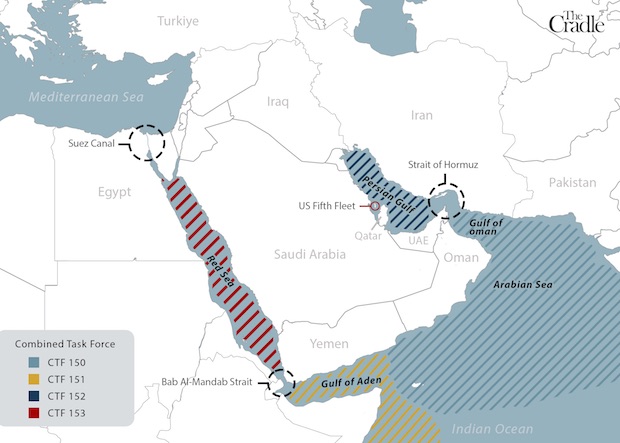

“..It is hard to portray yourself as the defender of democracy by preventing citizens from voting for the current frontrunner for the presidency..”
• Is Colorado Counting on a Mootness Escape Clause? (Turley)
The office of Colorado Secretary of State Jena Griswald issued a statement that, since the appeal was filed with the Supreme Court, Trump’s name will remain on the ballot “unless the U.S. Supreme Court declines to take the case or otherwise affirms the Colorado Supreme Court ruling.” That clause or provision from the opinion may offer a welcomed escape option for both the Supreme Court and the state. mThe timing question could have an interesting impact on the case. It could avoid a review by the Supreme Court by effectively mooting the case if the Supreme Court simply lets the clock run past January 5, 2024. The question is whether the Court would see a need to review the matter if no change would occur to the ballot itself. The Colorado Secretary of State issued a press release that stated in part:
“The Colorado Republican Party has appealed the Colorado Supreme Court’s decision in Anderson v. Griswold to the U.S. Supreme Court. With the appeal filed, Donald Trump will be included as a candidate on Colorado’s 2024 Presidential Primary Ballot when certification occurs on Jan. 5, 2024, unless the U.S. Supreme Court declines to take the case or otherwise affirms the Colorado Supreme Court ruling.” The Supreme Court should still take the case and reject the Colorado decision. This issue will only repeat itself in the general election and challengers are seeking additional judges or courts to embrace this dangerous theory. Currently, Colorado is an outlier. However, the Secretary of State in Maine has been as outspoken as Griswald on what she views as an “insurrection” on January 6th.
It is clear why challengers saw Democrat Maine Secretary of State Shenna Bellows as the most likely to endorse their theory. Bellows has already declared that “The Jan 6 insurrection was an unlawful attempt to overthrow the results of a free and fair election… The insurrectionists failed, and democracy prevailed.” A year after the riot, Bellows was still denoucing what she called “the violent insurrection.” Colorado may prefer to wait for states like Maine to join the cause rather than leave the state as the outlier. Moreover, it is clear to many of us that Colorado will lose before the Supreme Court if push comes to shove. This would remove the shove if the Court simply allows for review to continue beyond the certification on January 5th.
While the four Colorado justices have been lionized by pundits and the media, the optics could take a bad turn if liberal justices joined conservatives in setting aside this decision. Even on an all Democratically-appointed court, the majority was only able to eek out a 4-3 decision with three justices rejecting this novel theory. It is hard to portray yourself as the defender of democracy by preventing citizens from voting for the current frontrunner for the presidency. It is even more difficult when various states, including Democratic jurists and justices, reject this radical effort.The Secretary of State could have sought to lift the limitation on a pending review as barring removal. There was no effort to get the justices to reconsider that part of the ruling. Yet, Griswald could have argued that, once Trump is found to be an insurrectionalist under the Fourteenth Amendment, her office should not be compelled to include his name.
After all, the office is not an intermediate court and it has a ruling that Trump is disqualified as a matter of law. It appears, however, that Griswald accepts this condition that Trump will remain on the ballot unless the Court declines review (which seems unlikely) or affirms the Colorado Supreme Court (which seems even more unlikely). The question is whether Griswald herself will seek to have the matter declared as moot after January 5th. She can argue that, while the same objections could be raised for the balloting for the general election, it is pure conjecture that Trump will win the primary despite every poll showing an overwhelming lead. She could then avoid a likely reversal but arguing that there is no change on the balloting and thus no injury to the Colorado GOP.

“..why not simply point out that the Colorado supreme court’s ruling is total nonsense as Trump has not been convicted of insurrection?”
• Democrats Facing Election Wipeout Resort to Desperate Actions (PCR)
Civil rights groups are suing under US law in behalf of immigrant-invaders who are not US citizens and have no protection of US civil right laws. The issue is a Texas state law that permits Texas authorities to arrest and deport illegal immigrants. The claim is that illegal immigrant-invaders are protected from Texas law by federal civil rights law, a nonsense claim that destroys the concept of citizenship. Remember the “Covid pandemic” when New York was restricting entry of US citizens into New York? How is it that New York can control the entry of US citizens into New York by such measures as imposing a two week quarantine on arrivals, but Texas can’t control the entry of non-US citizens into Texas? Under the 10th Amendment, Texas has the power to control entry just as northern states such as New Jersey, Connecticut, Ohio, Indiana, and Illinois passed laws designed to prevent free blacks from entering the states to settle.
Those who prefer federal over state power claim that the 10th Amendment is a dead-letter Amendment overturned by the federal government’s assumption of powers not granted to it by the Constitution. A more accurate way to describe this is to say that the federal government’s assumption of powers granted to the states is unconstitutional and must be overturned by the Supreme Court. The only constitutional way an Amendment can be overturned is by repeal. What has happened is a coup against the US Constitution by the federal government. The 10th Amendment has not been repealed. It is still a part of the Constitution. It is simply ignored as all other Amendments increasingly are.
Counts will decide the issue between Texas and the US Department of Justice (sic) on the basis of whether state or federal government has the power to control immigration. As the record shows, northern states prohibited black immigration from the South. Were free blacks considered in the North to be US citizens? The answer seems to be partly but not wholly. The knee-jerk response of almost every jurist is that the 10th Amendment is no longer part of the Constitution. The ruling is expected to go against Texas. But the question remains why the federal government insists on its unique responsibility for immigration laws that it refuses to enforce.The greater threat is the claim of some immigrant-invader advocates that the illegal non-citizens have the right under US civil rights laws to residency in the US.
The effort by Democrats in Colorado (and other states) to prevent Donald Trump from being on the ballot in the 2024 election shows a total absence of legal comprehension on the part of the non-diverse 100% Democrat Colorado state supreme court. One wonders where they get these “judges.” The legally illiterate Democrat judges ruled that Colorado could ban Trump from being on the ballot in Colorado in 2024 for the reason that he engaged in insurrection against the United States. The legally illiterate Colorado secretary of state said that “Donald Trump engaged in insurrection and was disqualified under the Constitution from the Colorado Ballot. The Colorado Supreme Court got it right.”Maine’s secretary of state Shenna Bellows has taken it upon herself alone to remove Trump from the ballot for insurrection.
Think about what this means. Trump has not been convicted of insurrection. Every member of the Colorado entirely Democrat supreme court and Colorado’s and Maine’s Democrat secretaries of state assumes that assertion alone is proof of guilt. Clearly, Democrat Colorado and Maine are not states whose officials and judges understand law or are capable of serving justice. Neither do the Colorado Republicans understand. In their appeal to the US Supreme Court for a ruling on the Colorado state court decision, the Republicans argue that the President is not an officer of the US under the meaning of the provision in the 14th Amendment, that only Congress has the power to apply the insurrection provision, and that Colorado’s ruling, if allowed to stand, would violate the people’s ability to select candidates in primaries. Little doubt this is correct, but why not simply point out that the Colorado supreme court’s ruling is total nonsense as Trump has not been convicted of insurrection?
The persecutions of Trump are not legitimate. They are weaponizations of law designed to keep power in the hands of the ruling establishment. That these persecutions are not denounced by bar associations, law schools, politicians, media and the American people indicates that the weaponization of law is generally accepted as a legitimate tool in the struggle for power. The Democrats who falsely accused Trump of election interference are now interfering themselves. With the public alerted, the Democrats are unable to steal a third election in a row, and have resorted to the desperate attempt to claim authority they do not have to prevent Trump from running for president. Democrats have proven that they are tyrants. The acceptance by the American establishment of the obvious use of weaponized law associated with Joseph Stalin indicates that the rule of law is dead in the United States. As time passes, Americans will understand that they are prisoners, and not a free people.

“President Trump remains undefeated in 14th Amendment ballot challenges in federal courts..”
• Judge Dismisses Attempt By Virginia Activists To Keep Trump Off Ballot (JTN)
A federal judge Friday dismissed a motion by two Virginia activists to keep former President Donald Trump off the ballot in the Old Dominion. Roy Perry-Bey and Carlos Howard, said in a statement announcing their complaint that, Trump’s “overt election interference undermine or deprive [sic] them of their right to participate equally in secure, free and fair elections, due to Trump’s filing his statement of candidacy to participate in the 2024 Presidential Primary election.” Judge Leonie Brinkema of the Eastern District of Virginia granted Trump his request to dismiss the plaintiff’s case.
“President Trump remains undefeated in 14th Amendment ballot challenges in federal courts with today’s ruling in the Eastern District of Virginia,” said Steven Cheung, Trump campaign spokesperson, in statement. Calling the suits “bad-faith, politically motivated attempts to steal the 2024 election by disqualifying” Trump from the ballot, Cheung pointed to dismissals in the federal courts of West Virginia, New Hampshire, Florida, Arizona, and Rhode Island, as well as state courts in Michigan and Minnesota. “President Trump has pulled significantly ahead in the polls and is poised to defeat failed president Crooked Joe Biden, or whomever the desperate Democrats put forth in 2024,” Cheung said.

“..Alissa Heinerscheid, vice president of marketing for Bud Light, sought to dismantle Bud Light’s “fratty reputation.” She succeeded.”
• Bud Light Sales Still Down 28% as Consumers Continue Boycott (Turley)
Beer analysts are saying that Bud Light is still struggling with the boycott that has reduced its sale by a whopping 28% over the four weeks leading up to Dec. 9 — and heading to the all-important New Year’s sale period. The tragic irony for the company is that Alissa Heinerscheid, vice president of marketing for Bud Light, sought to dismantle Bud Light’s “fratty reputation.” She succeeded. It is now the symbol of woke companies for many and consumers seem to be treating the company as a vehicle to express their opposition to the social and political campaigns of companies from Disney to Nike. Notably, U.S. beer shipments dropped by more than 5% over the first nine months of 2023, reflecting a trend among younger voters away from alcohol.
However, Bud Light appears to be off the charts as consumers continue to send a message by buying other brands. The timing is critical. According to the Distilled Spirits Council of the United States, a quarter of the $49-billion-a-year distilled spirits industry’s profits come between Thanksgiving and the New Year. The continued struggle of Bud Light during this period could magnify the losses and the message in the market. The message appears to be getting through. Corporate executives have long yielded to demands for greater political and social agendas despite indicators that these campaigns were driving away business.
That is changing as shareholders object to subsidizing campaigns unconnected to products. Most recently, Disney appeared to acknowledge that its own campaigns were undermining sales and alienating consumers. It is the invisible hand of Adam Smith at work. However, this is more of a backhand for Bud Light, which has tried to distance itself from the earlier campaign. The problem is that many consumers now view the company as a symbol of this struggle between companies and the public. Some are seeking to “hoist the wretch” to warn other companies. It seems that Bud Light is now that wretch.

Long forecast from Jim.
• Do You Dare Even Look? – Forecast 2024 (Kunstler)
It’s absurd to imagine that “Joe Biden” can actually run. The current charade, with the Biden / Harris email campaign and few other trappings, is just a game of pretend. The focus just now, even on some blob-captive news sites, is on his unmistakable mental decline. Come January of ’24, though, Mr. Comer, chair of the House Oversight Committee, will unload hard evidence of bribery and treason against the phantom of the White House, and that will really be the end of him. Let him pardon himself and his whole family five minutes before he signs his resignation and be gone. The USA has never endured such a perfect wretch at that level of politics, not even Aaron Burr was this bad. “Joe Biden” was elected in a massive fraud, and he proceeded to just about wreck the country.
The massive exertions of the Intel blob managed to induce a psychotic spell on half the country, mostly to evade prosecution for their own misdeeds, but millions of victims of that psy-op are about to snap out of it. The Democratic Party might not survive the dreadful unmasking of its seditious machinations. By November, the “Joe Biden” regime may even try to involve us in another foreign war as the last desperate distraction. Aside from the demons in the State Department and the Raytheon /Lockheed Martin nexus, the whole country has no appetite left for war, and probably little ability to prosecute one.
As a last gasp, the Party of Chaos may attempt to insert Hillary Clinton back into the picture. They have nothing and no one else; a hail Mary on the theory that they can rev up every angry “Karen” in the land, and their nose-ring daughters, and simply make the election about the oppression of women, leading with abortion. It won’t work. The party will also have to answer for the weaponization of law, the humiliating defeat of the ill-conceived Ukraine project, the millions-fold invasion of illegal aliens, the shattered economy, and the after-effects of the evil vaccine program. If the blob manages to remove Mr. Trump Kagan-style, and the traitorous Republicans run their donor’s favorite, Nikki Haley, I’d look to Bobby Kennedy winning that three-way race not unlike Abe Lincoln winning the fractious election of 1860.
I doubt that even the enmities of 1861 – 1865 between one group of Americans and another were as vicious as they are now. “Joe Biden” was right about one thing: this is a battle over the soul of the nation. The catch is, he and the party behind him are a gang of lost souls who sold out their country and their culture, and took something precious from all of us that will be very hard to get back. We will be wildly lucky if blood does not spill over it.




Love it
Love it! 😂😂https://t.co/DFRcleenDz
— Figen (@TheFigen_) December 28, 2023

Architects
Architects of nature. pic.twitter.com/Xl7WCT0Zzl
— Figen (@TheFigen_) December 29, 2023

Reindeer
Reindeer Cyclones are a phenomenon where a herd of anxious reindeer forms a swirling mass, making it difficult to single out individual animals.
The fawns remain protected at the centre of this circular stampede.
pic.twitter.com/6HM1G6Eaj5— Science girl (@gunsnrosesgirl3) December 29, 2023


India is the only country in the world that has both lions and tigers. Not only this: India is the only country in the world where all these animals can be found together in the wild. Why? Because India’s varied climate zones support about 65,000 animal species, including bears, elephants, pythons, river dolphins, and rhinos, and 12,000 types of flowering plants.

Octopus
An incredible instance of an octopus disguising itself as the head of a bigger marine creaturepic.twitter.com/QpGyF7URqG
— Massimo (@Rainmaker1973) December 29, 2023

Wild yak
The wild yak (Bos mutus) is a large, wild bovine native to the Himalayas and is among the largest extant bovid species.
Adults stand about 1.6 to 2.05 meters (5.2 to 6.7 ft) tall at the shoulder, and weigh 500–1,200 kg (1,100–2,600 lbs).pic.twitter.com/uqacXZeeDP
— Massimo (@Rainmaker1973) December 29, 2023

FEAR
Forget everything and run,
OR
Face everything and rise!pic.twitter.com/vY8xcC0toM— Figen (@TheFigen_) December 29, 2023


Support the Automatic Earth in wartime with Paypal, Bitcoin and Patreon.




